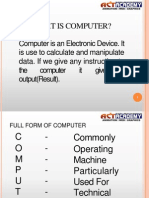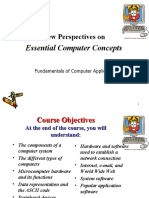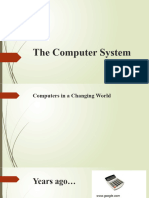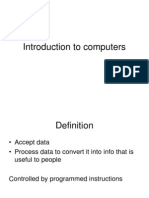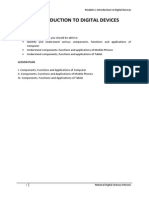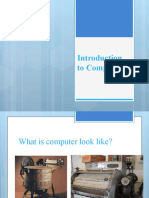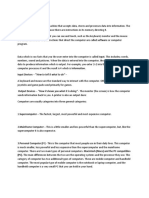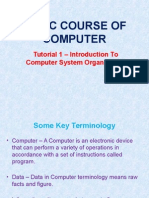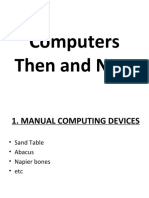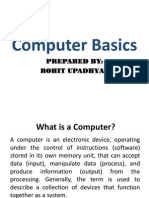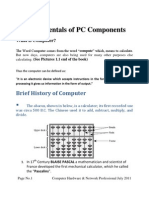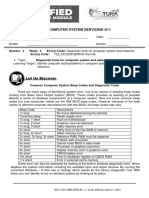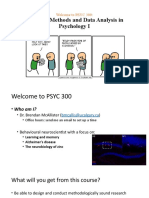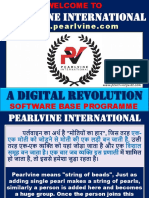0% found this document useful (0 votes)
10 views11 pagesNotes
The document provides an overview of computers, detailing their components including hardware (input, processing, storage, output, and communication devices) and software (system and application software). It explains the basic operations of a computer, the evolution of computers through various generations, and introduces concepts like the internet and artificial intelligence. Additionally, it includes definitions of key terms, memory measurement units, and common shortcut keys.
Uploaded by
aallahwarayo36Copyright
© © All Rights Reserved
We take content rights seriously. If you suspect this is your content, claim it here.
Available Formats
Download as PDF, TXT or read online on Scribd
0% found this document useful (0 votes)
10 views11 pagesNotes
The document provides an overview of computers, detailing their components including hardware (input, processing, storage, output, and communication devices) and software (system and application software). It explains the basic operations of a computer, the evolution of computers through various generations, and introduces concepts like the internet and artificial intelligence. Additionally, it includes definitions of key terms, memory measurement units, and common shortcut keys.
Uploaded by
aallahwarayo36Copyright
© © All Rights Reserved
We take content rights seriously. If you suspect this is your content, claim it here.
Available Formats
Download as PDF, TXT or read online on Scribd
/ 11
